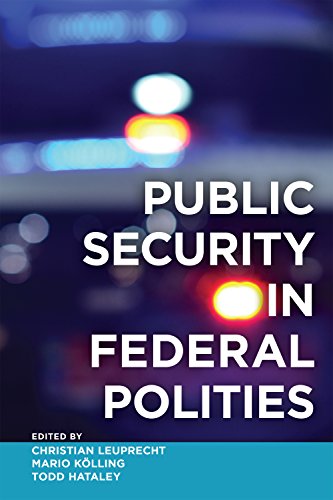

Most ebook files are in PDF format, so you can easily read them using various software such as Foxit Reader or directly on the Google Chrome browser.
Some ebook files are released by publishers in other formats such as .awz, .mobi, .epub, .fb2, etc. You may need to install specific software to read these formats on mobile/PC, such as Calibre.
Please read the tutorial at this link: https://ebookbell.com/faq
We offer FREE conversion to the popular formats you request; however, this may take some time. Therefore, right after payment, please email us, and we will try to provide the service as quickly as possible.
For some exceptional file formats or broken links (if any), please refrain from opening any disputes. Instead, email us first, and we will try to assist within a maximum of 6 hours.
EbookBell Team

4.4
12 reviewsPublic Security in Federal Polities offers a broad comparative review of constitutional, institutional, and legislative frameworks that inform public security across nine federations, and the implications that follow for institutional design, public administration, and public policy.
Public Security in Federal Polities is the first systematic and methodical study to bring together the fields of security studies and comparative federalism. The volume explores the symbiotic relationship between public security concerns and institutional design, public administration, and public policy across nine federal country case studies: Brazil, Canada, Germany, India, Mexico, South Africa, Spain, Switzerland, and the United States. In addressing specific national security concerns and aspects of globalization that are challenging conventional approaches to global, international, regional, and domestic security, this volume examines how the constitutional and institutional framework of a society affects the effectiveness and efficiency of public security arrangements. Public Security in Federal Polities identifies differences and similarities, highlights best practices, and draws out lessons for both particular federations, and for federal systems in general. This book is essential reading for scholars, students, practitioners as well as policy- and decision-makers of security and federalism.